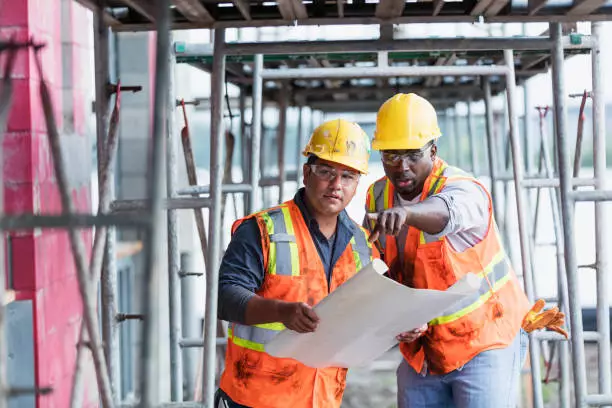Why Construction Companies Fail
Construction is similar to any other business in that it requires a good product or service, motivated employees, and a healthy customer base to succeed. However, success in the construction industry is far more difficult than in most other fields. According to Census Bureau data, construction businesses failed at nearly 1.5 times the rate of businesses in other industries over the last ten years.
Why are contractors and suppliers so vulnerable to going bankrupt? Construction companies almost always fail for the same reason: cash flow.
Cashflow: Construction’s #1 Problem
Many construction professionals make the mistake of believing that profit is the key to success. Isn’t it true that as long as revenue exceeds expenses, the company is safe from bankruptcy? Unfortunately, this is incorrect, and this erroneous belief has driven many businesses out of business. It’s a classic business paradox; profit is required for a construction company to grow, but it isn’t enough to keep it alive.
This is because revenue and profit are mostly “paper” measures that appear on your income statement but don’t tell you how much money you have in the bank. You can run the most profitable construction company in the world, but if you don’t have enough cash to pay your bills, you’ll be forced to seek additional financing (if you can find it) or declare bankruptcy.
The Effects of Late Payments on Construction Companies
According to a PwC report, the average DSO (days of sales outstanding) for most companies in 2018 was 83 days. Accounts are marked as “receivable” for nearly three months before being paid. The company still has bills to pay during those three months. While you wait for payment, you can’t put off supplier invoices, employee paychecks, rent, and other overhead costs.
The structure of the payment chain is one of the main reasons for slow payments in construction. On construction projects, money flows like a waterfall, starting with the property owner and trickling down each level until it reaches the subs and suppliers at the bottom of the chain. The higher the level of separation between your company and the checkbook; for example, the property owner or a project’s lender.
The longer you’ll have to wait for payment — the greater the risk to your cash flow. Slow payments are frequently caused by factors that are completely within the contractor’s control. The credit and collection practices used by a construction company will have a significant impact on their ability to get paid on time and improve their cash flow.
Unfortunately, many contractors are their own worst enemies, as their poor collection practices encourage customers to pay late.
How Poor Accounting Process Play a Role in the Failure of Construction Companies
Accounting best practices can provide a snapshot of a company’s health and aid contractors in identifying financial issues while they’re still manageable. Construction companies have special accounting requirements: they must track cash flow for each project, as well as manage significant overhead costs. Inaccurate books will conceal cash flow issues that need to be addressed.
Many businesses fail despite good accounting practices because they do not read the reports correctly. Business owners are frequently seduced by their profits on paper, failing to pay attention to the financial statements that will make or break a construction firm’s bottom line. The construction industry is, in many ways, one of the most innovative industries in the world.
However, many construction companies are stuck in the last century when it comes to back-office processes, relying heavily on paper documents for everything from purchase orders to scheduling to actual payments. Construction companies can already use technology and software to track payments, exchange documents, and spot problems in real-time.
Companies that rely solely on paper processes may not realize their payment is late until several days after it was supposed to arrive in the mail, especially now that the USPS has announced plans to delay construction documents even more.
Tips For Avoiding Bankruptcy In The Construction Industry
While there are a variety of reasons why construction companies fail, they almost always revolve around cash flow. Contractors and suppliers must prioritize good cash management practices and keep a close eye on the money flowing in and out of their business to succeed in this industry.
1. Take steps to get paid more quickly.
Adopting tried-and-true payment practices is perhaps the most important thing construction companies can do to avoid cash flow issues sinking their business. This includes knowing the payment laws that protect construction companies, prequalifying customers before signing on to a project, and following up on outstanding invoices on a regular basis.
However, sending preliminary notices on each project is one of the simplest ways to avoid the cash flow issues associated with slow payment.
2. Pay attention to the right financial statements
While construction firms use a variety of financial statements, the cash flow statement and cash flow projection report are two of the most important tips for safeguarding your bottom line and avoiding business failure. These two statements work together to help you identify current financial issues and budget for future projects.
Furthermore, you can use several accounting reports to track your collection rates on both past projects and ongoing jobs.
3. Make better financial decisions.
Contractors have a variety of financing options, but the best one for you will depend on what you need the money for. Traditional bank loans or lines of credit may be appropriate for some construction businesses, but they are typically limited to those with CPA-prepared financial statements.
Construction companies may find that invoice factoring is a viable option for collecting payment applications as soon as they are submitted. You can also find 120-day financing for materials to relieve much of the cash flow pressure on any project for contractors struggling to pay the supplier costs upfront.
Conclusion
Cash flow determines whether a company succeeds or fails in the construction industry. Contractors and suppliers face significant financial risk as a result of the way money move on a project, but that risk can be mitigated with the right tools. Knowing your numbers isn’t enough: construction companies that are successful take active and ongoing steps to improve their operations. These companies can find the financial footing they need to weather any economic storm by keeping a close eye on cash flow and using tools to get paid faster.




